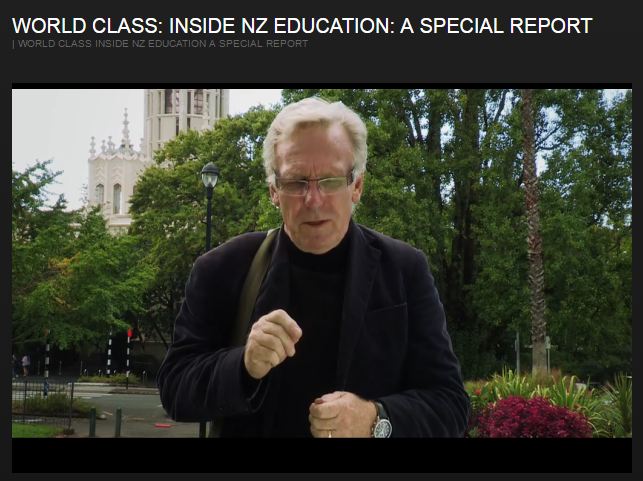
It was very good to see an intelligent article on TV the other night (TV3 World Class: Inside Education. A special report). While mostly about the compulsory sector the comments and opinions in the programme are of interest to those of us in the/polytechnic sector.
One the main ideas revolves around whether or not education is a community good or an individual right.
It’s a Scot (bless him), Michael Russell, Cabinet Secretary for Education in the Scottish Parliament who says:”….education is not just an individual good it’s an investment in society”. University education is free in Scotland and not a commodity which individuals pay for.
Another idea is around choice. While the changes in New Zealand over the last 30 years can be seen as beginning with the Picot report (1998), Minister Lockwood Smith’s decision to end school zoning in the early 1990s , Bryan Bruce argues was the beginning of a form of social control. The Labour Government reintroduced zoning in 2000 but John Morris (School zoning may seem fair but in reality it fails. Herald, Feb 8, 2006) says that it is not the right policy for the 21st century. “….we are being regulated as if nothing has changed”. For me zoning helps moderate the excesses of competition.
Being able to choose is great: But in the end who can choose? Usually only the people who have the money, the status or the skills to make the choices. If I want my children to go to a ‘good school’ I have to be able to afford transport, uniforms and possible fees. If I haven’t got the means I can’t choose. Offering choices about schooling has provided ample room for competition. You can’t, says reporter and researcher Bruce, provide equity and fairness by competition.
A third idea is about testing. It’s usual now in New Zealand and other countries to test. Frequently. Testing provides data, supposedly about how students are doing and how schools are doing. Schools that have high test results attract students through parental decision often) who believe that high test scores equal quality education. The programme shows some horrific examples of schools that train for tests and some pretty inspiring examples of students at Manurewa Intermediate who learn through inquiry based learning.
Whatever your perception on the role of education I think this programme asked some questions worth considering. And while the programme is designed to question what is working, we acknowledge that some aspects of the compulsory system do work well. It’s not all broken.
